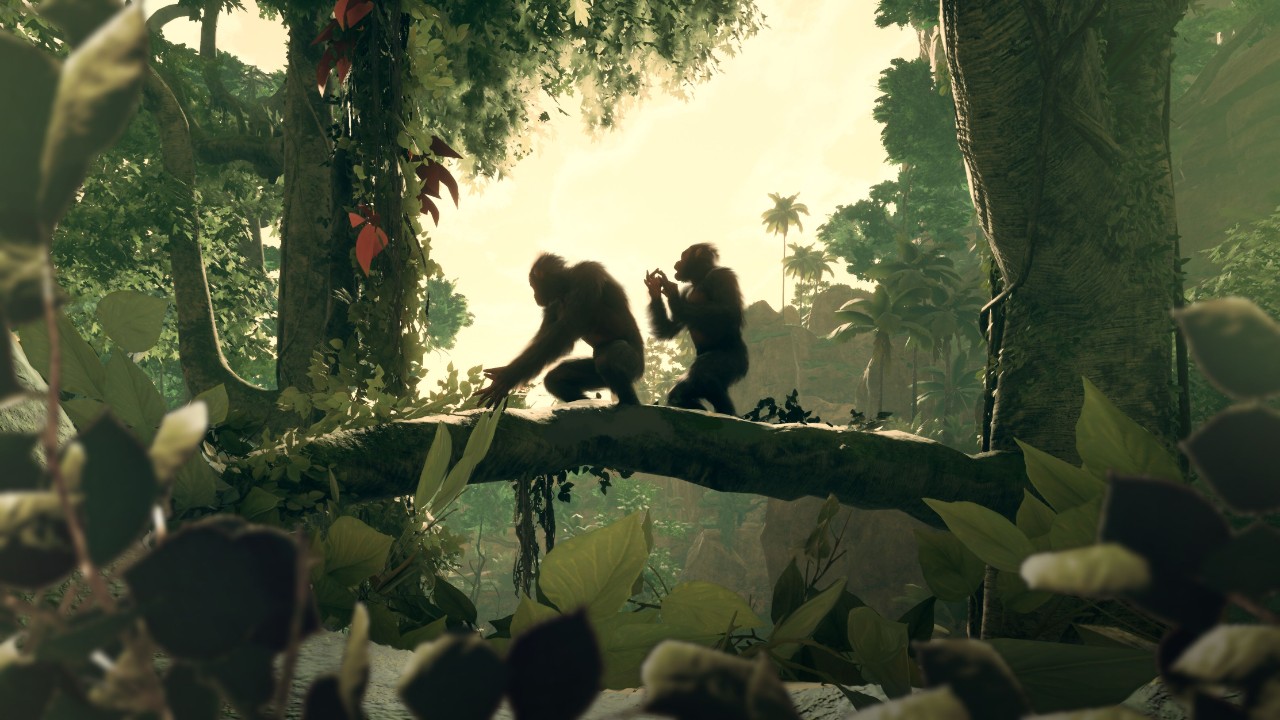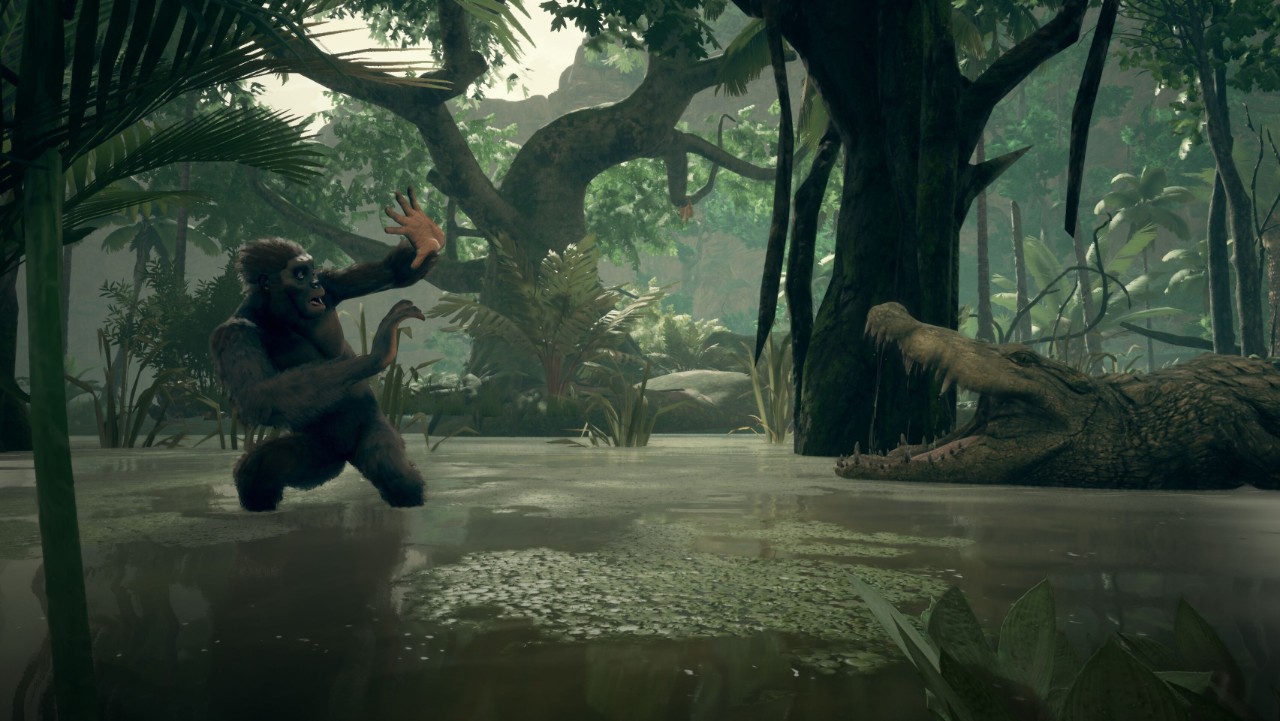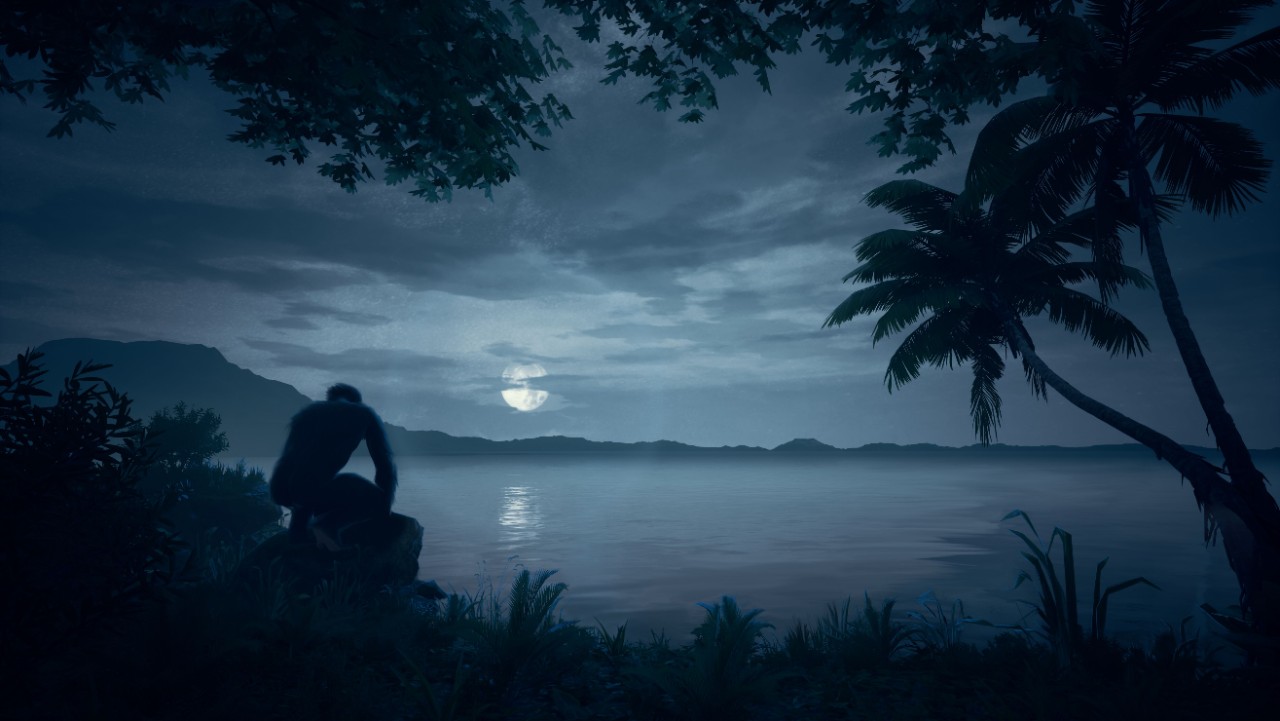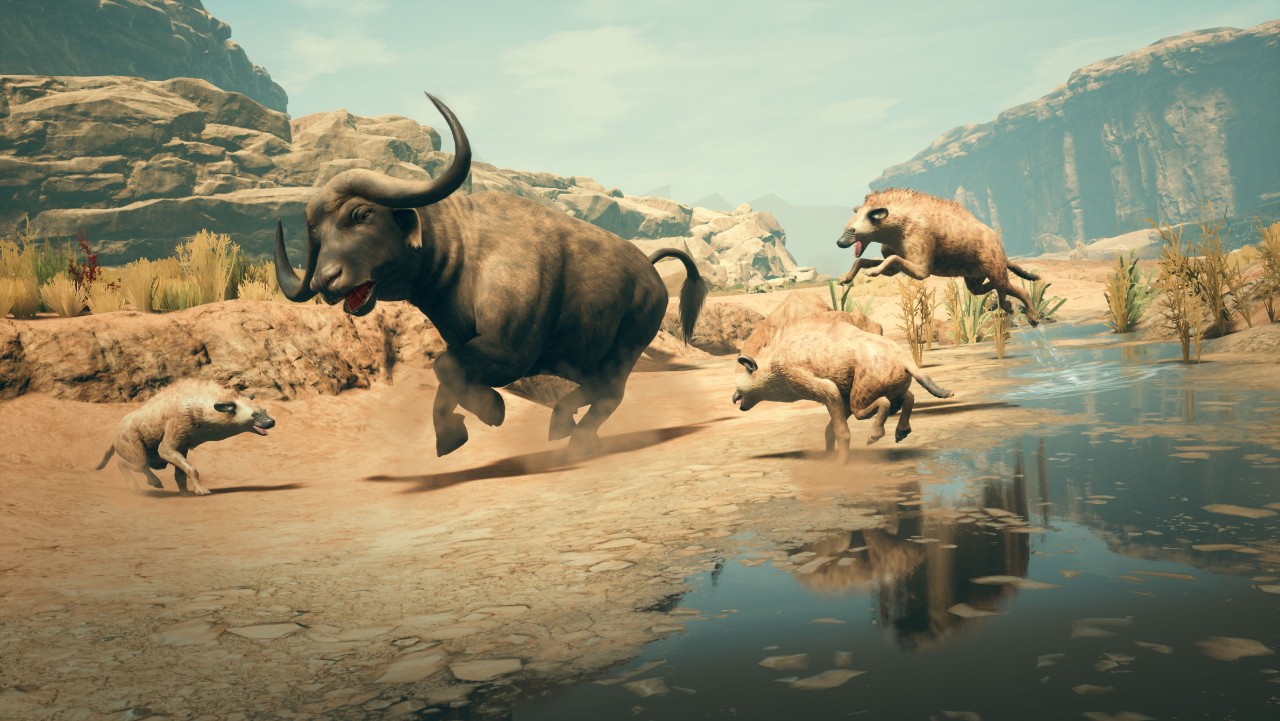When Ancestors: The Humankind Odyssey launched on PC over the summer, its players were divided into two camps. One was in awe of its possibilities, and another was scared away by its laissez-faire design.
Finally arriving on PS4 and Xbox One months later, the developers behind Ancestors have used the re-launch to bring a host of new features to one of the year’s most ambitious games.
Where do these new onboarding changes leave us?
Well, I didn’t play Ancestors before this major patch, but having played several hours after the fact, I can say Ancestors is a game that will infuriate you nearly as much as it will fascinate you — and maybe that’s okay.
Ancestors: The Humankind Odyssey Review — Survival of the Most Patient
No one ever said evolution was supposed to be easy, and in Ancestors, it never is. Panache Games’ prehistoric ancestry simulator starts slow and welcomes you to keep it that way. Even as Ancestors is clearly at its best when you follow that slow path, it’s still an often obtuse, confusing game that punishes players in a hurry and taunts, “now survive.”
Coming from Patrice Desilets, the creator of Assassin’s Creed, it’s funny to see Ancestors reject so much of the rote open-world experience he helped birth. The game has several large hubs, and each of them has a different biome, such as jungle, desert, and swampland.
However, you won’t be chasing repeating icons across the map to perform side quests. Across these hubs, our early human ancestors from as far back as 10 million years ago are in your hands, and survival is purely what’s at stake.
“Now survive” was once nearly the only implied prompt PC players received, but with recent patchwork and the launch on consoles, the game now holds your hand a bit more. However, that hand-holding is still nowhere near enough to earn the time of most players. Ancestors still feels delighted to be obtuse.
It’s a blessing and a curse, really. On the one hand, such a design feels authentic. Early hominids didn’t have to time button presses to crack open coconuts, and they weren’t able to swap among other members in their clan at will (especially upon death). Even so, these gamified mechanics feel designed to stay as true as they can to their ancient actions.
Yet, because of the way players interact with the world and start from nothingness, the evolution of the controller layout is one of its biggest problems in Ancestors.
Simple movements we take for granted, like moving an item from one hand to another, are among the first abilities you learn. Inspecting an object, for example, is an ability, which alters another ability still, and that ability is timing based. Collectively, it can take a Harmonix-like manipulation of the controller just to peel a branch of its leaves.
While these early maneuvers become the foundation for learning new things and get easier over time, they’re always replaced by new confounding mechanics to understand.
Design like that speaks to a Cageian intent on revolutionizing how players manipulate virtual worlds. Still, in Ancestors, it can all feel so unsatisfying and slow that it creates a glacial learning curve.
Consider then these first few hours of learning simple tasks like how to eat, sleep, mate, climb, and so on as the Darwinian test of will for would-be players in this extremely ambitious world. Get beyond those first few unforgiving scenes, and the sense of reward and progress grows exponentially, even as it never ceases to introduce more layers too complex for their own good.
While you start as a herbivore, later evolutionary leaps take you millions of years into the future, up to about 2 million years from today. In that time, you’ll grow from a small clan of relative imbeciles to eventually much smarter, fiercer, more capable hominids.
Early encounters with predators such as snakes and crocodiles are brutal and tough to escape, especially when they unfold in territories with which you’re unfamiliar; the game clouds those regions in an effectively haunting haze meant to depict your innate fear of the unknown.
But conquer those new lands and you allow your clan to explore further, experiment more, and thrive like never before. Anything you do should always come with two infant hominids clinging to your body, as it’s only through their witnessing of your actions that you can ensure genetic progress is passed down through generations.
While it can be grueling, the uplifting part about Ancestors‘ design is how all experiences are conducive to learning. Eating poison berries will leave you sick, but they’ll also build up immunities. Getting attacked by a crocodile is terrifying, but narrowly escaping teaches you how to beat the odds. When the little ones watch it all unfold, it’s like seeing the future where they have gone and done better directly because of your instructional living.
When my first clan died off, and I had to start over, I was disheartened at the roguelike nature of evolutionary progress. It takes a lot to grow your clan and ensure they’re progressing as needed. It’s not a fun game to start anew. Because of that, it’s crucial anyone who survives the first act — to see some traits passed down to future generations — ensures they never go extinct.
The open hub nature of Ancestors makes for a smart setting that begs to be explored. New challenges and triumphs can be found up every tree and under every rock. Watching for predators, or better yet, evading or fighting them, is a repeatable high-intensity moment with real stakes. That feeling is heightened given the game’s use of permadeath, especially because the game always seems to give you what you’ve earned.
New traits are dripped out to players slowly, but your actions have consequences. That can mean making vital strides over a few hours, or it can mean instant death when you try to snatch a giant bird’s egg from its nest — seriously, don’t try this at home.
Many people will downright hate Ancestors, but it’s blatantly designed for accepting that eventuality. Patrice Desilets and his team seem to understand that their vision of visiting prehistory in such a grand way means treating the experience, including UI, controller input, and survival odds, with the seriousness of the subject. Whomever they lose on the way are not among the fittest.
Ancestors: The Humankind Odyssey Review — The Bottom Line
Pros:
- Pulls no punches
- Discovery and successes feel extraordinarily earned
Cons:
- No really, pulls NO punches
- Controls are often unwieldy and unintuitive
I’m still not sure I even enjoyed Ancestors. That is to say, I know I didn’t have fun with Panache Games’ take on the subject matter like I did reading Harari’s Sapiens. But fun seems like the absolutely wrong metric to apply to Ancestors.
As fascinating as it is to read about our early hominids or watch a documentary about them, the interactivity of games seems to mean the concept won’t travel well for most players.
Among those who are up for Ancestors‘ relentlessness, many will find their favorite game of the year. And if that’s a small portion of the overall players who try to evolve through this game, then so be it, says Panache. I tend to agree.
[Note: A copy of Ancestors: The Humankind Odyssey was provided Take-Two Interactive for the purpose of this review.]










Published: Dec 8, 2019 05:12 pm